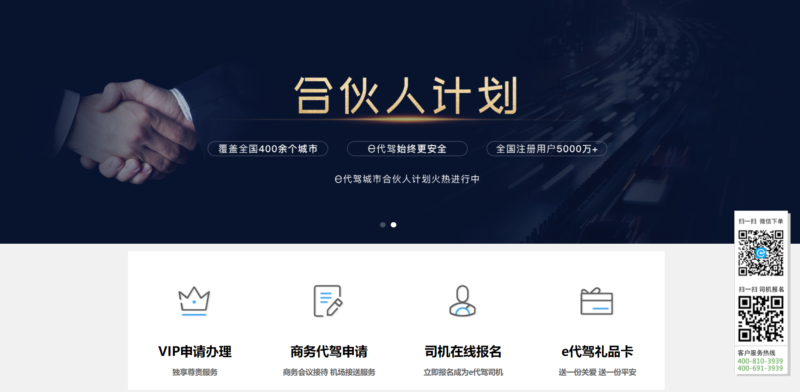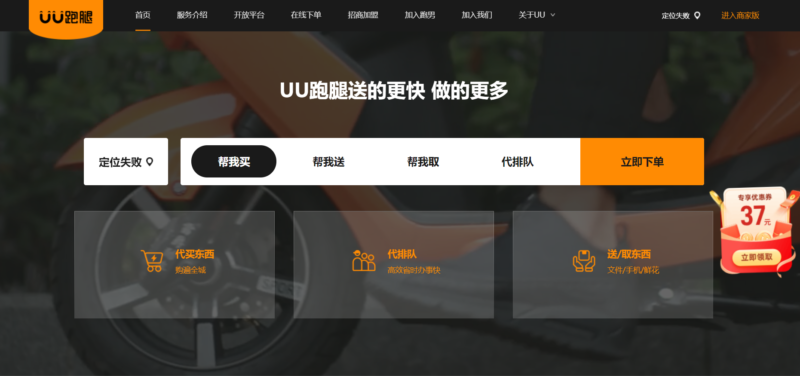With 986 million mobile internet users and 853 million mobile payment users in 2021, China’s internet sector has created a breeding ground for the gig economy. It is estimated that there are about 200 million gig workers across the country, accounting for almost one fourth of China’s entire labor force.
However, China’s thriving gig economy is not without challenges. High debt due to expansion at all costs, pressures from investors and plans to go public induced platforms to keep drivers’ pay low. For instance, Didi Chuxing charges up to 50% of the ride’s fare to its drivers, while food delivery apps like Meituan adopt a strict algorithm so as to reduce chances for couriers to get bonuses.
The e-commerce, food delivery and ride-hailing markets are highly concentrated since top players hold over 80% market share, catching the attention of national antitrust bodies. Moreover, the growing discontent among gig employees pushed authorities to invite online platforms to improve the conditions of food-delivery, logistics and transport workers by raising wages and enhancing safety. Tightening regulations, demographic changes and geopolitical tensions are posing new challenges to China’s gig economy, prompting companies to innovate their business model in order to keep on flourishing.
Three “gigs” in China’s gig economy you’ve never heard of
Beyond ride-hailing, takeout food and express delivery, which are at the core of China’s gig economy, Chinese consumers can choose among a much wider array of services, such as designated drivers, boyfriend rental programs and professional line standers.
Designated drivers
Drinking alcohol is deeply rooted in Chinese business culture. According to the 2018 Global Report on Alcohol and Health published by the World Health Organization, alcohol consumption is declining all over the world, except in China. Per capita consumption jumped from 4.1 liters in 2005 to 7.2 liters in 2016, recording a 76% rise. Additionally, Chinese law has zero tolerance for drinking and driving, meaning any blood alcohol level above 0 results in a criminal offense.
Awareness towards drunk driving led to the emergence of apps such as eDaijia, Didi Daijia and Aidaijia which help intoxicated people to ask for temporary drivers who can take them home safely. In recent years, chauffer services have steadily grown in China and currently supply barely meet demand. The Covid-19 pandemic hit the industry leading to a 11% drop in terms of volume of orders in 2020, compared to the previous year. As stable jobs decreased, the government launched measures supporting flexible employment and self-employment, fostering the development of the chauffer industry. In particular, new regulations will allow platforms to recruit and train migrant workers, thus increasing the supply of available drivers. In 2018, roughly 267 million people used chauffer services and, according to a study published by the prestigious Tsinghua University, designated drivers helped to prevent about 3.5 million traffic accidents in 2016.

Source: eDaijia Official Website, eDaijia is one of the most popular platforms for chauffer service in China
Boyfriend rental service
According to the National Bureau of Statistics and the Women’s Federation, in 72% of Chinese households, women are those responsible for all or most of household chores, such as cooking, washing dishes, doing laundry, and taking care of children. Despite of such extra work at home, they usually earn about 32.7% less than what a man earns. On the top of that, Chinese young women experience tremendous pressure for getting married before being in their 30s, otherwise they are going to be labeled as “leftover women.” This is the background situation triggering the rise of boyfriend rental services in China.
Beyond looking for temporary boyfriends to take home during holidays, which helps single women avoid annoying questions from relatives, Chinese women mostly utilize boyfriend rental programs simply to have someone to talk to without dealing with mansplaining or attempts to control them. Several cafés, malls and restaurants across the country provide their female customers with such kind of service: by scanning a QR code and paying a variable sum of money, women can hire a handsome guy to catch a movie, go shopping and chat with. In some cases it is even possible to subscribe to a boyfriend rental membership plan.

Source: Weibo, boyfriend-sharing kiosk in a mall in China
Professional line standers
Queuing up is one essential aspect of daily life in China: you need to queue up for registering at the hospital, getting your train tickets, and even buying from trending milk tea stores. Nevertheless, urban professionals are less and less keen to waste their precious time to stand in line, that is why they are willing to pay in order to hire someone who could do it on their behalf.
Professional line standers do not just sell a service, but they sell their time to customers helping them deal with boring everyday errands. About 5.13 million people used errand running apps in 2018, with an increase of twice compared to the year before. Shansong, UUpaotui and Dada were the fastest-growing errand running apps during 2018, boasting roughly 1.26 million, 1.33 million and 306 thousand monthly average users in July. Over 55% of those who installed this kind of app on their phones are male consumers aged between 25 and 35 years, living in Tier-1 and new Tier-1 cities. Boosted by the lazy economy, errand running platforms are bound to thrive in future and professional line standers are going to be a ubiquitous presence in China’s major cities.

Source: UUpaotui Official Website, UUpaotui is one of the main players in China providing shopping, delivery and other errand running services 24/7
Takeaways from China’s gig economy
- After having been growing for years in a favorable environment, China’s gig economy entered a new stage of development and many obstacles lay ahead: the low-cost business model adopted so far is no longer sustainable and demographic changes are forcing companies to deal with new consumer groups.
- Even though ride-hailing, takeout food and express delivery are at the core of China’s gig economy, it is a much broader concept including unusual services, such as designated drivers, boyfriend-sharing programs, and professional line standers.
- Awareness towards drunk driving led to the emergence of APPs helping drunk people to hire temporary drivers who could take them home safely. Although the pandemic had a negative impact on this market, it is expected to continue to grow in the future.
- Social pressure on Chinese women led to the spread of boyfriend-sharing: by scanning a QR code, it is possible to “rent” a temporary boyfriend who is going to make his customers feel cared and pampered.
- Due to frenetic working life in China’s Tier-1 cities and the spread of the lazy economy, more and more people decide to rely on professional line standers in order to fulfill their daily errands. UUpaotui, Shansong and Dada are the most popular platforms.





